LATEST NEWS


On Wednesday, May 20, the day after a Santa Barbara County fire inspector discovered a stream of contaminated crude oil flowing onto a pristine segment of the Southern California coast, a group of researchers published a study linking the 2010 Deepwater Horizon oil spill to a mass die-off of bottlenose dolphins. The 46 carcasses examined for the study had suffered from “rare, life-threatening and chronic adrenal gland and lung diseases.” The researchers concluded that these diseases were “consistent with exposure to petroleum compounds as seen in other mammals.”
46 years after the first oil spill that wrecked the Santa Barbara coast, not much has changed
Hearing this, the casual observer might say duh, and wonder why such a study makes the news at this late date, a full five years after British Petroleum’s oil rig exploded and sank,
» Read more about: Slick With Denial: 'Self-Regulation' and the Latest Oil Spill »
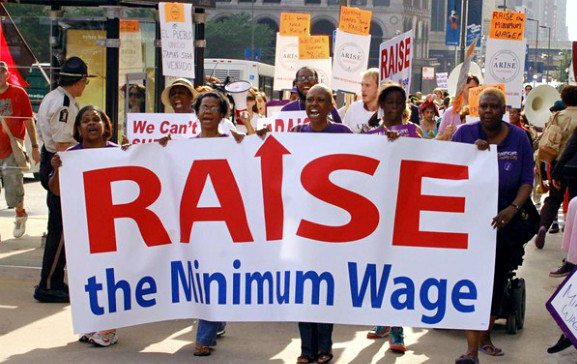
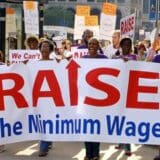
On Tuesday, the Los Angeles City Council voted 14-1 to adopt a citywide minimum wage of $15/hour by 2020. The next day, marching behind a giant banner that read, “McDonald’s: $15 and Union Rights, Not Food Stamps,” 5,000 cooks and cashiers show up at the company’s corporate headquarters in Oak Brook, Illinois, to kick off the largest-ever protest to hit the burger giant’s annual shareholder meeting.
These events represent the two battlegrounds in the growing war over wages taking place across the country. One strategy focuses on getting elected officials in local and state governments to adopt minimum wages above the federal level. The other strategy involves putting pressure on major employees — typically highly visible companies that depend on positive public relations to gain consumers’ dollars — to raise the wages of their employees.
The two strategies complement rather than compete with each other,
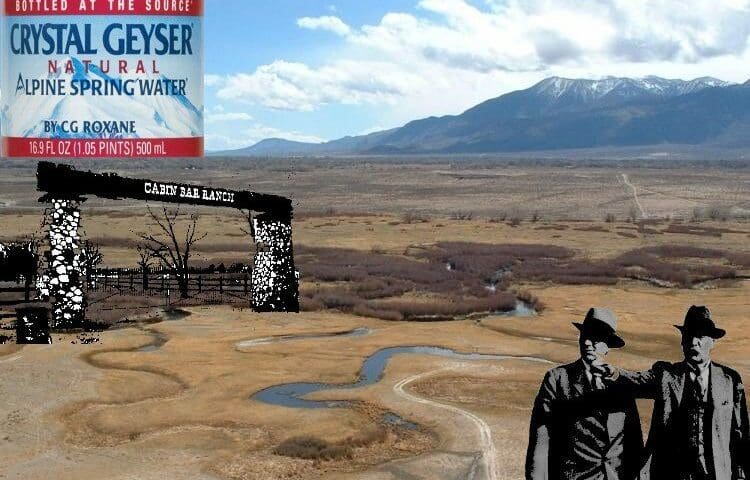
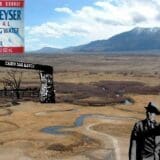
To the west of the Sierra Nevada Mountains, in California’s vast, dry San Joaquin Valley, a catastrophe is unfolding. Drought-stricken growers, deprived of surface water for irrigation, are pumping ancient aquifers at a rate that will eventually extinguish them forever, should the water shortage persist. About 120 miles away, on the opposite side of the snow-starved mountain range, sits the Owens Valley. Here, the drought is merely an aggravating factor in a water crisis that began more than a century ago. In 1913, William Mulholland and the Los Angeles Department of Water and Power completed the aqueduct that tapped the river that once irrigated the high desert basin and diverted it to the citrus groves of the San Fernando Valley, 200 miles to the south. Then in 1970, the LADWP completed its second aqueduct and began pumping the valley’s groundwater until all but a single major spring had run dry.
» Read more about: Cursed With Water: Owens Valley’s Toxic Surprise »
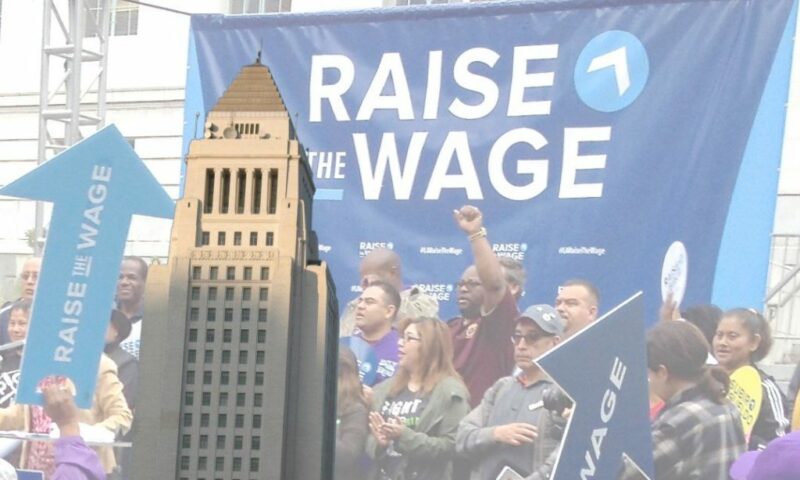
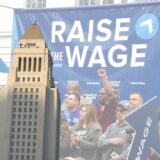
Fair wage advocates won a big victory Tuesday, when the Los Angeles City Council voted 14-1 to advance a measure that would gradually boost the base pay in the City of Los Angeles to $15 an hour by 2020. City Attorney Mike Feuer will now be asked to draft a minimum-wage ordinance that the council will vote upon to make the measure law.
The legislation begins by raising the current wage of $9 an hour to $10.50 in July of 2016—after that the hourly wage would go up each year by one dollar. The vote could lead to making Los Angeles the largest city in the nation to set a minimum wage standard above the federal level, one that will benefit some 600,000 employees in the city—some 40 percent of L.A.’s workforce. The decision also adds heft and momentum to efforts nationally to raise the minimum wage for the nation’s lowest-paid workers.


Yoel Matute had worked at a Santa Monica car wash for seven years and was upset because he believed he wasn’t being paid for all the hours he worked. So in 2012 he decided to sue in court to recover his wages.
Matute soon got an unwelcome surprise. His employer attempted to enforce an arbitration agreement – an agreement Matute didn’t even know he had signed — preventing him from filing a lawsuit. Instead, the agreement mandated that the dispute be heard in arbitration, an out-of-court process that generally favors employers over workers like Matute.
When he had originally applied for his job Matute was handed what he thought was a work application. Some parts of the document were in Spanish, others in English. Matute, who is from Honduras and can read little Spanish and virtually no English, was given just a few minutes to review it, and he did not understand any of the sections in English.
» Read more about: Arbitration Clauses: More Job Seekers Are Signing on a Crooked Dotted Line »
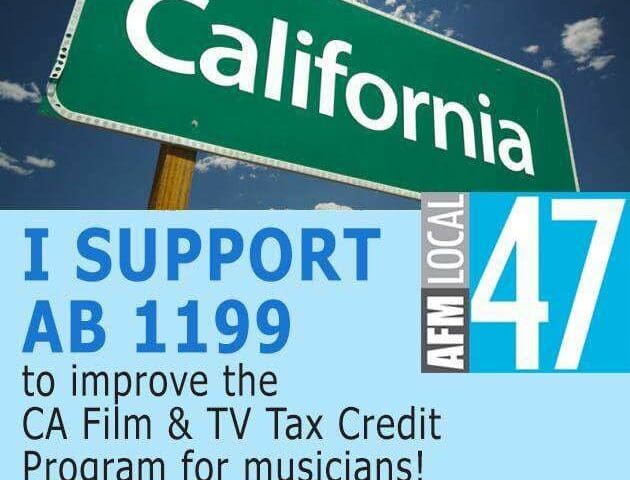
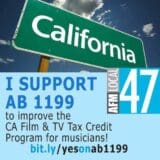
Last week California began accepting applications for the first round of the new film and TV tax credit, which policy makers in Sacramento had beefed up to try and lure film production back to the state. The legislature passed a five-year, $1.65 billion film tax incentive program last year, and with the revamped tax credit program up and running, many entertainment workers throughout California are feeling something not felt in a long time: Hope. For the first time in 15 years, the program feels better equipped to keep our suffering entertainment industry from flatlining and to revive the iconic “Hollywood brand” to its former greatness.
For every dollar a musician earns, nearly $2 are put into the California economy.
However, not everyone has cause to celebrate. Thousands of California’s post-production workers, including recording musicians, are still shortchanged by the tax credit program,
» Read more about: A Bill to Save Jobs for California Musicians »
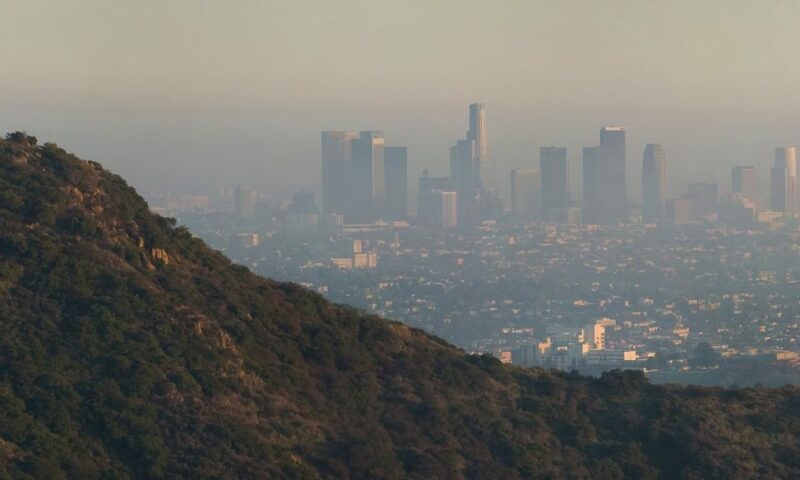

A common refrain among opponents of clean air, water and endangered species is that environmental regulation kills jobs. From some perspectives, they’re occasionally right: Go talk to a coal miner in Kentucky staring down the Obama administration’s new rules for reducing greenhouse gas emissions from new power plants, or an Oregon tree-feller on the topic of spotted owls. When rules to protect nature and public health kick in, whole economies sometimes die.
But it’s also true that people living in poverty suffer disproportionately from industrial pollution, and that wealth benefits from the long-term protection of resources — without restraint, after all, one day there’d be no forests to log. So a United Nations’ Brundtland Commission in 1987 proposed another way of looking at the situation, one that wouldn’t pit laudable values against each other, but would instead regard economic and environmental health as inseparable. The Brundtland participants coined the term “sustainable development” and,
» Read more about: Jobs & the Environment: An L.A. County Report Card »
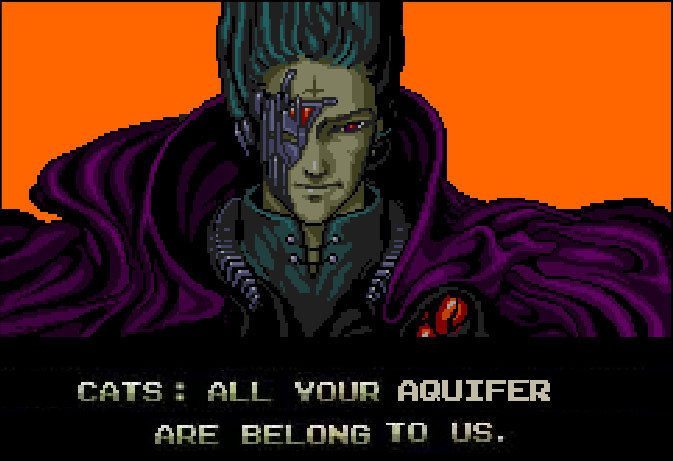

“Absolutely not. In fact, if I could increase it, I would,” said Nestlé Waters North America CEO Tim Brown Wednesday on KPCC, when asked by NASA hydrologist Jay Famiglietti whether he would ever consider moving his water bottling operations out of drought-stricken California, like Starbucks is doing. By Brown’s estimate, Nestlé’s bottling business currently uses 700,000,000 gallons of California groundwater a year.
Nestlé isn’t the only company draining California’s aquifers and shipping the water out of state in the middle of a megadrought. In fact, as I reported here this week, the Crystal Geyser Water Company is getting ready to open up a brand new operation in Mount Shasta, at the headwaters of the Sacramento River. And, just down the road from the Crystal Geyser site, plans are being drawn up to build yet another, “boutique”
» Read more about: 700 Million Gallons of California Groundwater Isn't Enough for Nestlé »
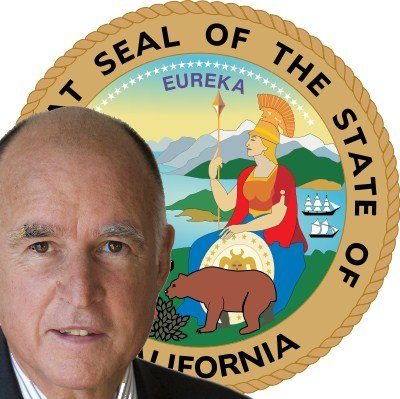

In his budget proposal unveiled Thursday, Governor Jerry Brown proposed a state version of a program that has proven extremely helpful at lifting families out of poverty. Unfortunately, the threshold in Brown’s proposal would be absurdly low – leaving the few it would reach still languishing well below the poverty line.
The Federal Earned Income Tax Credit (EITC) is a highly effective anti-poverty program. The Brookings Institute estimates that the EITC kept 6.2 million Americans out of poverty annually between 2011-13, including 747,000 Californians.
It works by providing low-income residents with a tax credit, either lowering taxes or providing a refund for those whose incomes are so low that they owe little or no income tax. The credit varies by income and number of children in a family, and is designed to provide a boost to the poorest, while still providing an incentive to work.
In 2009, as the U.S. economy teetered on the brink of catastrophe, a newly elected Barack Obama leaned heavily on the counsel of a small circle of experts. Perhaps the most unlikely member of Obama’s inner sanctum, which included Larry Summers, Timothy Geithner, Christina Romer and Peter Orszag, was Jared Bernstein, a meditation devotee and professionally trained musician with a PhD in social welfare.
Chosen by Joe Biden to be the Vice President’s top economic advisor, Bernstein had distinguished himself as a passionate critic of inequality during his long tenure at the Economic Policy Institute, one of the country’s leading think tanks. His views on economic issues were well to the left of Obama’s and the rest of the President’s team, ensuring that progressive ideas would get a hearing inside the White House as the administration wrestled with the worst downturn since the Great Depression.
While Obama and his advisors succeeded in reversing the Great Recession’s massive job losses and saving the bacon of the financial industry,
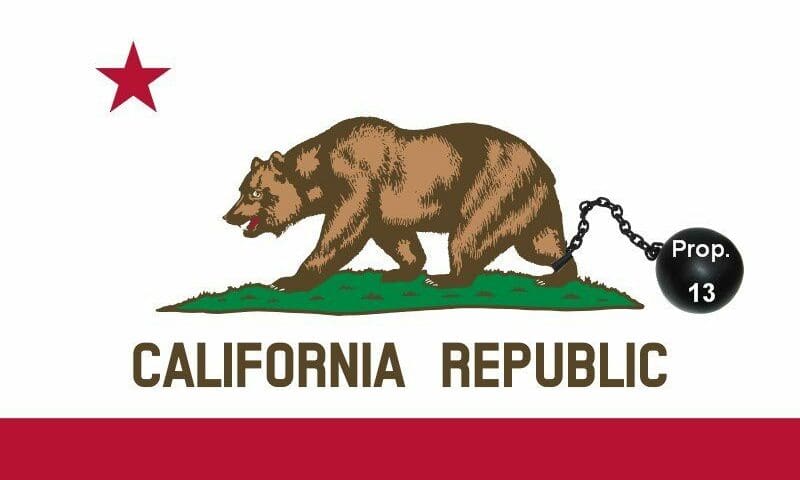
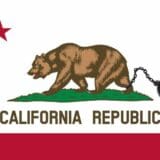
California is earthquake country but one seismic shift rumbling through the state won’t require bottled water and a three-day food supply.
That would be the political and demographic groundswell toward challenging elements of Proposition 13, the property tax measure passed by California voters in 1978 by a landslide and which has been considered untouchable ever since.
“Prop. 13 has been a contentious part of the political landscape for 40 years,” says John Kim of the Advancement Project, one of the organizations comprising Make It Fair, a coalition of 22 statewide organizations and 200 endorsers seeking Prop. 13 reforms.
The watershed initiative became synonymous with protecting the little guy after homeowners’ property tax rates grew so high in the 1970s that people on fixed incomes couldn’t afford to pay them. But from the start, a piece of the measure has protected the not-so-little-guys.


To sign up for Leighton Woodhouse’s email newsletter on the drought, go to Land of Thirst.
Nine years ago, Raven Stevens moved to Mount Shasta, California, after being priced out of the housing market in Santa Cruz, where she had lived for 27 years. She describes the picturesque mountain town just south of the Oregon border as a community “in transition.” By that she means two things: it is an economy moving from logging to more sustainable industries, such as tourism. And it is a community being overtaken by transplants from the Bay Area, like herself.
“We bring our crazy ideas with us,” she says. “And we get a hard time for that. We’ll never be locals. I’ve heard some people say, ‘You people should just go back to where you came from.’”
The house Stevens and her partner purchased in Mount Shasta is about two thousand feet south of an old water bottling plant that was vacated in 2010 by Coca-Cola/Danone.
» Read more about: Life in Time of Drought: Will Mount Shasta Bottle Its Water for Profit? »


A broad-based coalition today launched an effort to reform Proposition 13, the 1978 law passed by voters that many critics believe imposed a fiscal stranglehold on the Golden State.
The strategy of the “Make It Fair” coalition is clear – to split the business community while keeping homeowners on the sidelines. In doing so, advocates have put themselves in a strong position to challenge what has been called the third rail of California politics.
“Make It Fair” is proposing a critical change to the state’s tax law: closing loopholes that have allowed commercial properties to be taxed at nearly the same level as they were in 1975 (tax rates for residential property would remain unchanged). The coalition claims that California could gain an additional $9 billion a year if these loopholes are eliminated – revenue that could be used for schools, social services,
» Read more about: New Prop. 13 Reform Effort Could Succeed by Splitting Business Interests »


Emeryville, California is more than a brief Amtrak stop across the bay from San Francisco. On Tuesday evening all five Emeryville City Councilmembers approved an ordinance that increases the minimum wage for workers employed at small firms to $12.25 an hour, effective July 1. Employees at Emeryville companies with more than 55 employees, such as Home Depot and Ikea, will earn a minimum wage of $14.44 an hour, also to begin July 1.
“This is a momentous occasion for the city of Emeryville,” Jennifer Lin, deputy director of the East Bay Alliance for a Sustainable Economy, told Capital & Main by phone. “Many of the city councilmembers in their deliberations spoke about the need to address income inequality, to give workers a leg out of poverty.”
California’s current hourly minimum wage is $9, an increase of $1 over 2014. Meanwhile, the Golden State’s rate of poverty in 2013 was 23.4 percent,
» Read more about: Emeryville Joins Movement to Raise Minimum Wage »
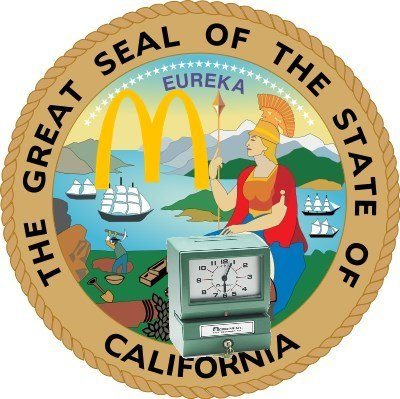

“If we’re serious about fighting inequality, we need to understand it and track it to see how we’re doing,” Dr. Annette Bernhardt tells Capital & Main. Bernhardt is the lead author of Low Wage Work in California: 2014 Chartbook, the first of what will be an annual report from the University of California, Berkeley Labor Center. “Our goal was to show that the story of inequality isn’t just about the top one percent; it’s also about the millions of low-wage workers and their families who struggle with economic insecurity every day.”
Bernhardt and co-authors Ian Perry and Lindsay Cattell have assembled a detailed yet accessible profile of California’s low-wage workers – those earning less than $13.63 per hour in 2014, which is two-thirds of the state’s median hourly wage. A third of California workers, about 4.7 million, fell below that standard last year.
» Read more about: Report: State's Low-Income Workers Are Falling Behind »
Move lips, move minds and make new meanings flare.
— Seamus Heaney, “Beacons at Bealtaine”
During a time of political optimism in Northern Ireland when the peace process was beginning to take hold, Irish poet and Nobel laureate Seamus Heaney gave a talk at Queens University in Belfast about the potential power of poetic language. In a place where the “idioms of suspicion and accusation” were insidious and entrenched, Heaney hoped that a fluid approach to identity and language might provide an escape route from binary thinking and the “weary twisted emotions” of Northern Ireland’s “troubles.”
Heaney suggested that it was poets and other writers who could provide a “re-angling of perception” that might loosen the stranglehold the sectarian psyche had imposed upon the linguistic and political landscape. Given some room to move, a more unruly vocabulary could surface where Catholics might regard themselves as “Catestants,” and Protestants could see themselves as “Protholics” —
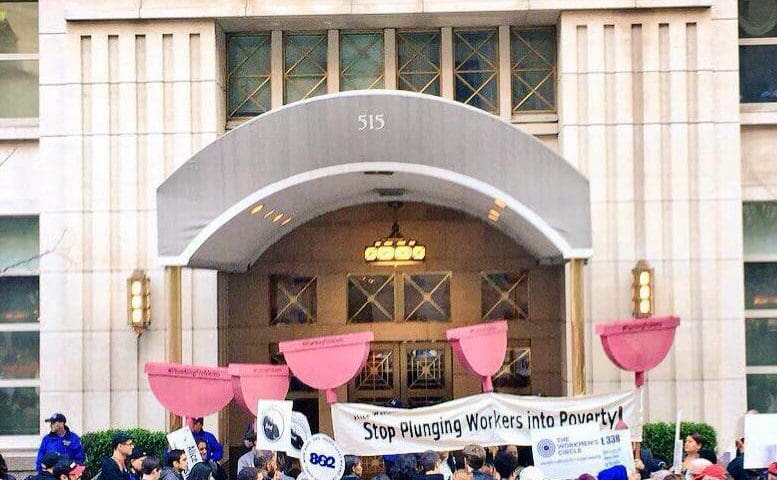
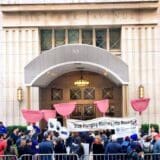
René Bobadilla had just started lunch on April 13 when he got a call from Walmart’s government relations office.
“I almost choked,” he says.
Bobadilla is the city manager of Pico Rivera and the government relations rep had just informed him that the local Walmart Supercenter was shutting down within hours and possibly for six months — due to a plumbing issue.
That meant 530 workers cut at Pico Rivera’s second-largest employer and a severe budget hit to the San Gabriel Valley city of 63,000. Sales tax from the Supercenter accounts for some 10 percent of city revenues — an estimated $1.4 million a year.
The nature of the problem is a mystery.
“They haven’t told us specifically — is it their main, do they have water coming out of their drain? I don’t know,” Bobadilla says.
The Pico Rivera store is one of five Walmart stores around the country suddenly closed due to vaguely defined plumbing problems.
» Read more about: Walmart's Pico Rivera 'Plumbing Problem' »
This year’s May Day events in Los Angeles are grouped around the themes of immigration reform and raising the minimum wage. Below is an updated list of events, provided by the Los Angeles May Day Coalition and other sources. Note: Michael Brown Sr., father of the teenager shot and killed last year in Ferguson, Missouri, will join the #MayDaySolidarity march meeting in Downtown L.A., at the Chinatown Gateway (Broadway & Cesar Chavez Ave.) shortly before 3 p.m. Tom Morello, activist, singer and guitarist for Rage Against the Machine and Audioslave, will join the march once it approaches the Metropolitan Detention Center (Aliso & Alameda streets) around 4 p.m.
Schedule of events:
2 p.m. – 3 p.m.: People gather at Dragon’s Gate, Chinatown, corner of Broadway & Cesar Chavez Ave.
3:15 p.m.– 3:45 p.m.: May Day Rally & program begins
Brief presentations and music. Speakers include elected officials such as L.A.
» Read more about: Tom Morello, Michael Brown Sr. to Join May Day Events »

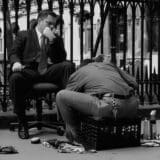
Charles Gladden has held his current job for eight years. The 63 year old sweeps floors, cleans dishes and mops bathrooms. His take-home pay is about $360 a week and he is currently homeless, moving between shelters and occasionally a Metro stop next to the White House.
Bertrand Olotara is a college graduate and a single father. After being laid off, he now earns $12 an hour as a cook and has a second job which often means he works up to 70 hours a week. Despite these two jobs, he is eligible for food stamps that help him feed his family.
These stories of America’s working poor aren’t anything new, but you may be surprised to learn where they work: the United States Senate. When the Senate privatized food service in their cafeterias and dining rooms, formerly living-wage jobs were converted into poverty-level positions through for-profit contractors like Restaurant Associates and Compass Group.
Rupert Murdoch’s News Corporation has a digital education division called Amplify. A Bloomberg News article, “News Corp.’s $1 Billion Plan to Overhaul Education Is Riddled With Failures,” outlines the company’s efforts to cash in on education without positive results. Read more here.
Other news: